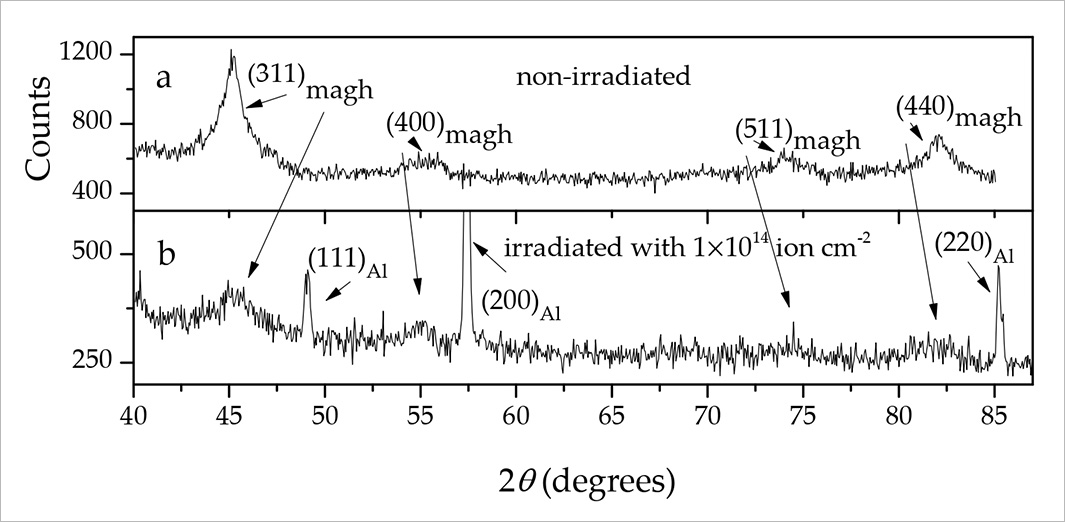Change in superparamagnetic state induced by swift heavy ion irradiation in nano-maghemite
News, 29 July 2024
Scientists from the Laboratory of Nuclear Reactions at JINR presented the results of their research on the effect of swift heavy ion irradiation on the superparamagnetic state of maghemite nanoparticles. The work was conducted in cooperation with researchers from Eötvös Loránd University (Hungary), National Research Nuclear University MEPhI (Russia), Palacký University (Czech Republic), and Tokyo Metropolitan University (Japan).
The effect of swift heavy ion irradiation on sol–gel-prepared maghemite nanoparticles was studied by 57Fe transmission Mössbauer spectroscopy and X-ray diffractometry (XRD). The room temperature Mössbauer spectra of the non-irradiated nano-maghemite showed poorly resolved magnetic split, typical relaxation spectra due to the superparamagnetic state of the nanoparticles.
Significant changes in the line shape, indicating changes in the superparamagnetic state, were found in the Mössbauer spectra upon irradiation by 160 MeV and 155 MeV 132Xe26+ ions with fluences of 5 × 1013 ion cm-2 and 1 × 1014 ion cm-2. XRD of the irradiated maghemite nanoparticles showed a significant broadening of the corresponding lines, indicating a decrease in the crystallite size, compared to those of the non-irradiated ones.
 XRD patterns of nano-maghemite samples before irradiation (a) and irradiated with 155 MeV Xe ions with a fluence of 1 × 1014 ion cm-2 (b).
XRD patterns of nano-maghemite samples before irradiation (a) and irradiated with 155 MeV Xe ions with a fluence of 1 × 1014 ion cm-2 (b).
The results are discussed in terms of the defects induced by irradiation and the corresponding changes related to the change in particle size and consequently in the superparamagnetic state caused by irradiation.
Read the full text of this paper via the link. JINR is represented in the list of authors by Vladimir Skuratov and Luboš Krupa.